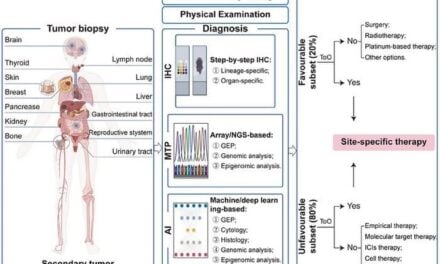Moffitt Cancer Center has received a $3.6 million grant from the National Institute of Dental and Craniofacial Research to further research that has unveiled a promising noninvasive diagnostic biomarker panel for the early detection of oropharyngeal cancer. The research, led by Anna R. Giuliano, PhD, addresses key challenges posed by late-stage diagnoses.
There has been an increase in oropharyngeal cancers, which develop in the base of the tongue, soft palate, tonsils, or back wall of the throat. Approximately 80% of cases are attributed to human papillomavirus (HPV) infection type 16. Late-stage diagnoses often require intensive chemo-radiation, leading to substantial incidence of disease, life-long disabilities, and death. Early detection is critical to help improve outcomes for this patient population.
The research team has successfully completed a series of studies centered on the development of an oral gargle biomarker panel tailored for early oropharyngeal cancer detection, according to Moffitt Cancer Center. This innovative panel, measurable in a single oral gargle specimen, exhibits the capability to differentiate between early oropharyngeal cancer cases and controls. A follow-up study further enhanced the panel’s specificity and sensitivity to encompass oral HPV 16 status and 13 differentially methylated regions that map to genes.
“This approach to oropharyngeal cancer early detection utilizes a noninvasive specimen easily obtained, for example, in routine dental practice. Once validated and put into practice, we believe this test will contribute to a paradigm shift in the way the disease is diagnosed and treated,” says Giuliano, co-principal investigator of the study and founding director of Moffitt’s Center for Immunization and Infection Research in Cancer.
Further reading: Circulating Tumor DNA Test Predicts Recurrence of Oropharyngeal Cancer Post-Treatment
The next phase of biomarker development involves leveraging biorepositories of early oropharyngeal cancer cases and research infrastructure at Moffitt and UPMC Hillman Cancer Center in Pittsburgh. The objective is to advance clinical assay development and validation by evaluating the oral biomarker panel among 100 early and 100 late-stage pre-treatment oropharyngeal cancer cases, alongside 200 matched controls from Moffitt and UPMC.
“Our central hypothesis is that we can distinguish early oropharyngeal cancer cases from cancer-free individuals using biomarkers related to HPV and host epigenetic alterations. This will enable the identification of tumors that can be effectively and safely treated with a single modality, ensuring the highest chances of survival,” says Antonio Amelio, PhD, co-principal investigator of the study, vice chair for research in Head and Neck Oncology and associate member of the Tumor Microenvironment and Metastasis Department at Moffitt.





